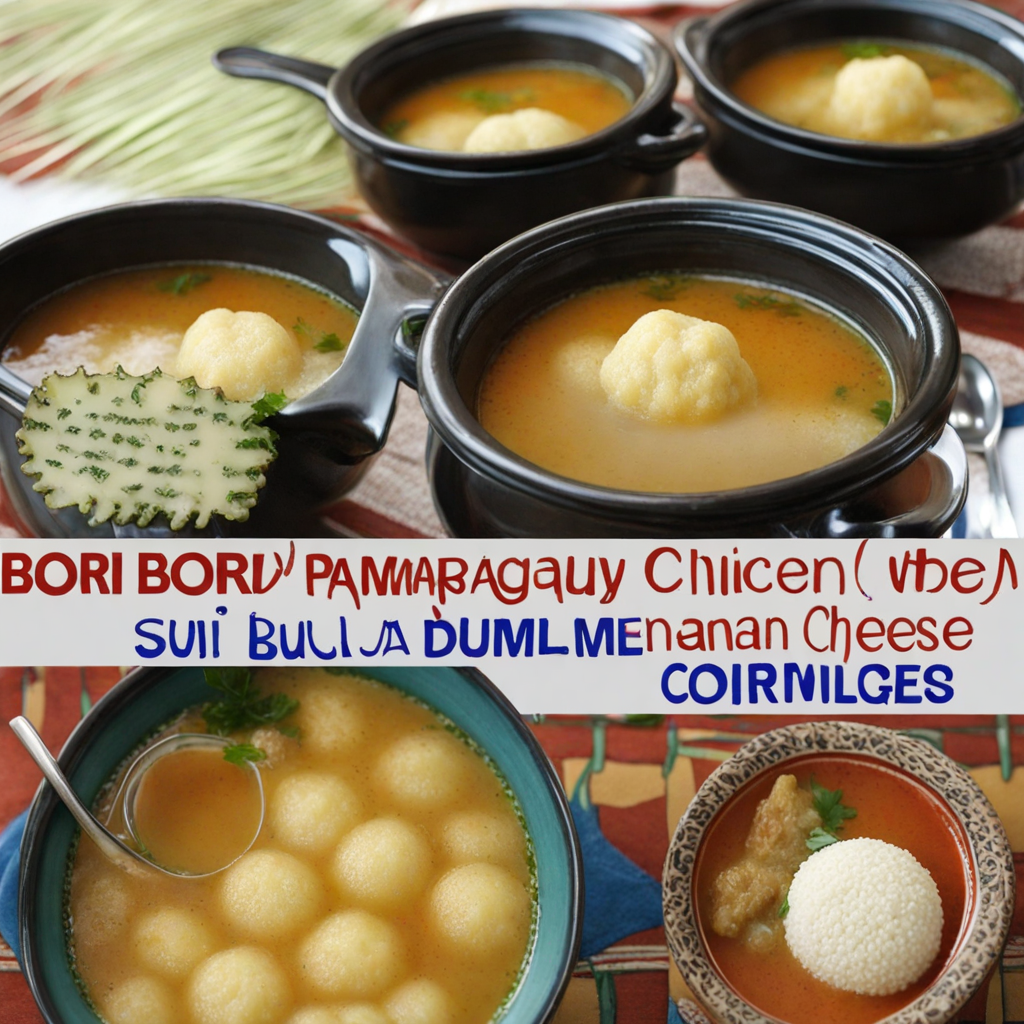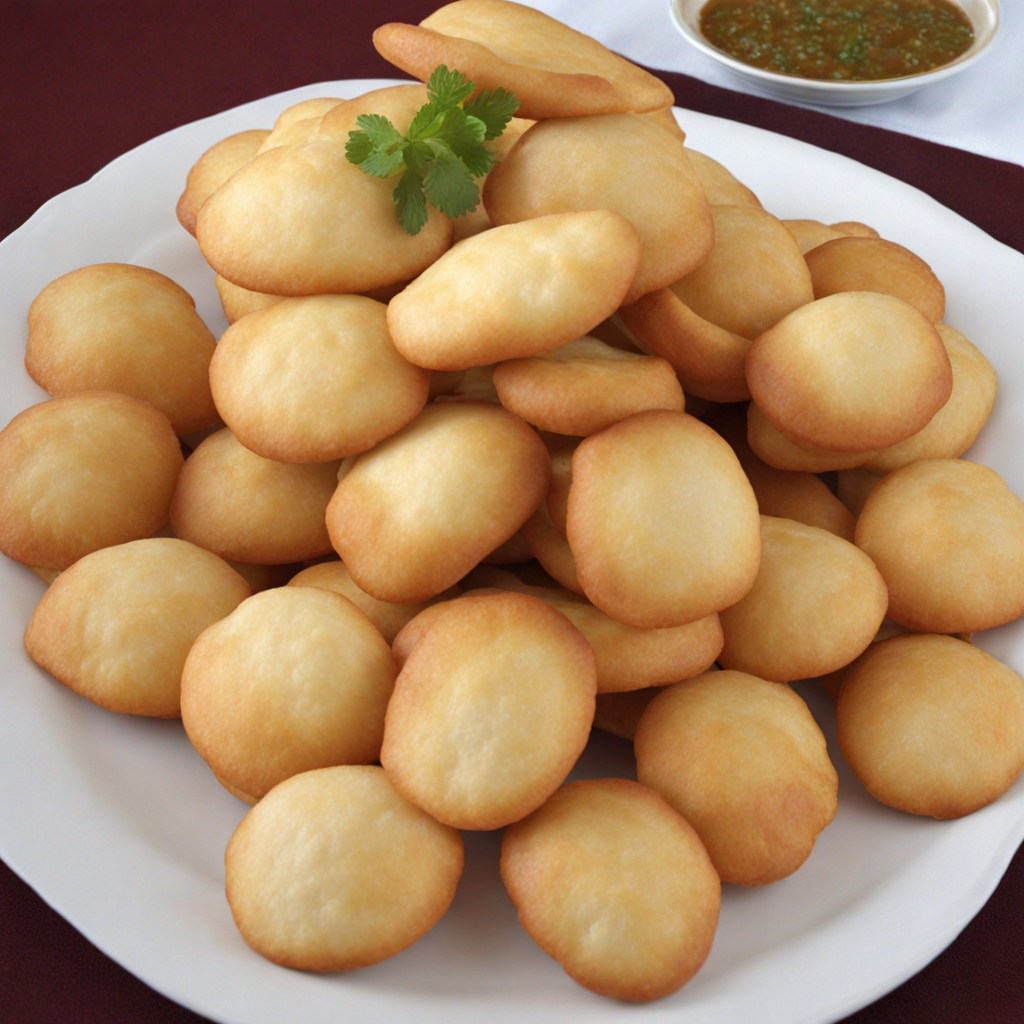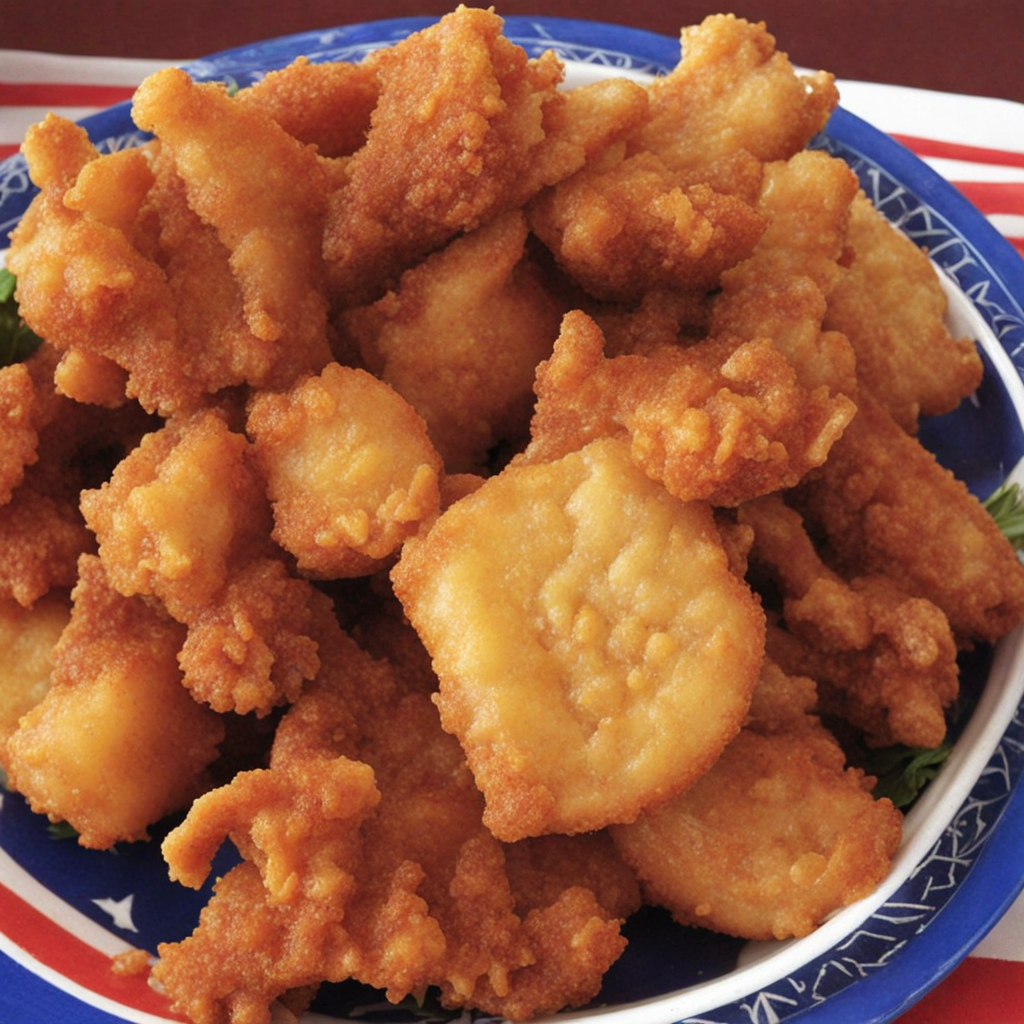Bori Bori
Bori Bori is a delightful traditional dish from Paraguay that showcases the rich culinary heritage of the region. At its core, Bori Bori is a hearty soup made with a base of chicken broth, which is infused with a medley of local herbs and spices. The star of the dish is the small cornmeal dumplings, known as "bori bori," which are made from a simple mixture of corn flour, cheese, and sometimes eggs. These dumplings are soft and fluffy, absorbing the flavors of the broth while adding a comforting texture to the dish. The flavor profile of Bori Bori is a harmonious blend of savory and slightly tangy notes, thanks to the mixture of ingredients used. The chicken broth provides a rich and warming backdrop, while the addition of fresh vegetables such as carrots, onions, and sometimes bell peppers adds a burst of color and nutrition. Some variations of Bori Bori include the use of herbs like parsley or cilantro, enhancing the dish with fresh and vibrant tastes that brighten the overall experience. What makes Bori Bori truly special is its versatility; it can be enjoyed as a comforting meal on a chilly day or as a nourishing dish during family gatherings. Its simplicity and heartiness make it a beloved staple among Paraguayans, often served alongside a refreshing salad or crusty bread. As you savor each spoonful, the unique combination of flavors and textures transports you to the heart of Paraguay, making Bori Bori a must-try for anyone eager to explore new and exciting culinary experiences.
How It Became This Dish
The History of Bori Bori: A Culinary Treasure of Paraguay #### Origins Bori Bori is a traditional Paraguayan dish that embodies the rich cultural tapestry of the country. The name "Bori Bori" is derived from the Guarani language, which is one of the official languages of Paraguay, alongside Spanish. The term itself is often interpreted to mean "stewed corn," reflecting its primary ingredient: cornmeal dumplings. Bori Bori is more than just a dish; it is a reflection of the indigenous Guarani people’s agricultural practices, culinary traditions, and the cultural exchanges that have shaped Paraguay's cuisine over centuries. The origins of Bori Bori can be traced back to the indigenous communities that inhabited the region long before European contact. The Guarani people relied heavily on corn as a staple crop, utilizing it in various forms in their diet. Corn was not only a source of sustenance but also held spiritual significance, symbolizing life and fertility. The incorporation of cornmeal into the dish speaks to its foundational role in Guarani culture. #### Cultural Significance Bori Bori holds a special place in the hearts of Paraguayans, transcending mere sustenance to become a symbol of national identity. It is often served during significant cultural events and family gatherings, reinforcing social bonds and community ties. The dish is particularly popular during traditional festivities such as the “Fiesta de la Virgen de Caacupé,” an important religious celebration, where food plays a central role in communal celebrations. The preparation of Bori Bori is often a communal affair, bringing families and friends together in the kitchen. This gathering not only highlights the importance of food in fostering relationships but also serves as a means of passing down culinary knowledge and traditions from one generation to the next. In a country where cultural diversity is celebrated, Bori Bori is a dish that unites people across different backgrounds, reflecting the shared agricultural heritage of Paraguay. #### Ingredients and Preparation Traditionally, Bori Bori consists of a hearty broth made from chicken or beef, flavored with various herbs and spices, and enriched with the main star of the dish: the cornmeal dumplings. To prepare the dumplings, a mixture of cornmeal, cheese (often Paraguayan cheese, known for its elasticity), and seasonings is kneaded into a soft dough. These small dumplings are then dropped into the simmering broth, where they cook until they become fluffy and absorb the rich flavors of the soup. Variations of Bori Bori exist across different regions of Paraguay, reflecting local ingredients and tastes. While the basic components remain consistent, some cooks may incorporate vegetables such as potatoes, carrots, or even local peppers, adding depth and complexity to the dish. The versatility of Bori Bori allows it to adapt to seasonal ingredients and personal preferences, ensuring its relevance in contemporary Paraguayan kitchens. #### Development Over Time The evolution of Bori Bori can be traced through Paraguay’s turbulent history, marked by colonization, wars, and economic changes. During the Spanish colonization in the 16th century, European culinary influences began to merge with indigenous practices, leading to the development of a hybrid cuisine. Ingredients such as meat and spices were introduced, which found their way into traditional dishes like Bori Bori. The Paraguayan War (1864-1870), also known as the Triple Alliance War, had a significant impact on the nation’s food culture. The war devastated the population and agricultural systems, leading to food scarcity. In the aftermath, the resilience of the Paraguayan people shone through their culinary practices as they adapted to new realities. Dishes like Bori Bori provided nourishment and comfort during difficult times, solidifying its place as a staple in Paraguayan cuisine. In the 20th century, as Paraguay began to modernize and urbanize, traditional dishes faced the threat of being overshadowed by fast food and global culinary trends. However, the growing interest in local gastronomy and the farm-to-table movement has sparked a resurgence of traditional dishes, including Bori Bori. Chefs and home cooks alike have embraced this dish, not only for its comforting flavors but also for its cultural significance. Today, Bori Bori is celebrated as a national dish, often featured on menus in restaurants across Paraguay and even in international culinary festivals. It stands as a testament to the country’s culinary heritage, bridging the gap between past and present. The dish has also caught the attention of food enthusiasts and chefs outside of Paraguay, contributing to a broader recognition of Paraguayan cuisine on the global stage. #### Modern Adaptations and Global Recognition As Paraguayans continue to embrace their culinary roots, Bori Bori has seen modern adaptations that reflect contemporary tastes and dietary preferences. Some chefs experiment with alternative ingredients, such as gluten-free flours for the dumplings or vegetarian broths, to cater to a wider audience. These adaptations maintain the essence of the dish while allowing it to resonate with diverse palates. Social media has played a pivotal role in popularizing Bori Bori beyond Paraguay's borders. Food bloggers and influencers showcase the dish's preparation, inviting a global audience to appreciate its flavors and cultural significance. This digital age has enabled Paraguayans in the diaspora to connect with their heritage through food, sharing recipes and stories that celebrate Bori Bori as a symbol of home. Moreover, culinary tourism in Paraguay has increased, with travelers seeking authentic experiences that connect them to local culture. Bori Bori is often included in culinary tours, where visitors can learn about its history, preparation, and significance from local cooks and chefs. This not only promotes the dish but also supports local economies and preserves culinary traditions. #### Conclusion In summary, Bori Bori is a dish that encapsulates the essence of Paraguayan culture, history, and identity. Its origins in indigenous agricultural practices, combined with influences from colonial history and the resilience shown during challenging times, have shaped it into a beloved staple of Paraguayan cuisine. As Bori Bori continues to evolve and adapt, it remains a symbol of unity and cultural pride, connecting generations of Paraguayans to their roots and inviting the world to savor its rich flavors. In every bowl of Bori Bori, one can taste the story of Paraguay—a narrative steeped in tradition, community, and the enduring power of food.
You may like
Discover local flavors from Paraguay






